當前位置: Language Tips> 雙語新聞
Japan Has A Clever Solution To Overcome The Language Barrier
近日,日本巖手縣推出了一套奇葩的旅游標志,以簡潔明了、圖文并茂的形式告知外國游客菜品選項、支付方式以及當地習俗等信息。據巖手縣盛岡市有關人士表示,推出這一系列標志是為了吸引不會說日語的外國游客。目前,商家可以從網上下載全套26副標志圖。
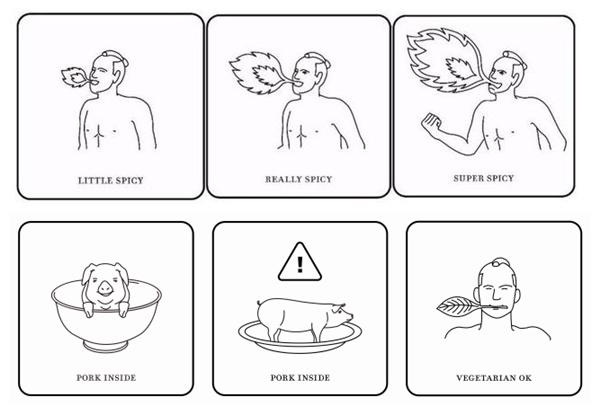
Language barriers can be a real struggle when traveling. But never fear, Japan has a clever solution for its English-speaking visitors.
語言障礙是旅游中面臨的一大困難。但是不用擔心,日本已經為講英語的游客想出了機智的解決方案。
Officials in the Iwate Prefecture have developed a lineup of tourism signs that display info about menu choices, payment options and locker room etiquette in simple, illustrated form.
日本巖手縣發明了一系列旅游標志,以簡潔明了、圖文并茂的形式呈現了菜品選項、支付方式以及更衣室禮儀等信息。


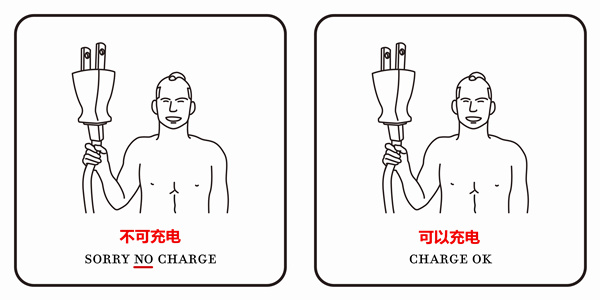
The signs are already on display around the city of Morioka, a regional development director, Takefumi Shimomukai, told The Japan Times. They’re intended to make English-speaking tourists feel more welcome in the area, he added.
盛岡市發展負責人Takefumi Shimomukai對《日本時報》表示,該市地區正在使用這些標志。他們的目的是讓講英語的游客在這里感受到賓至如歸的感覺。
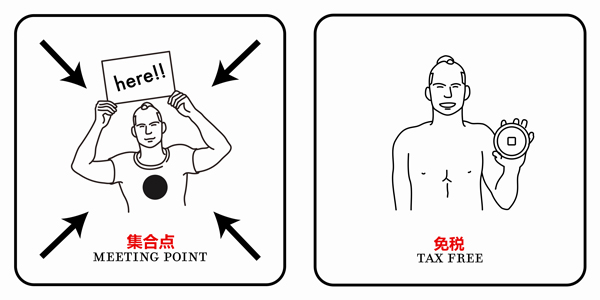
Twenty-six images are available for businesses to download online. Many of the signs have to do with dining. But they also provide advice for using onsens, Japan’s popular hot spring baths.
商家可以在線下載這26副圖片。其中許多標志和用餐有關。但也有一些是關于使用日式浴池的建議,溫泉浴在日本非常流行。
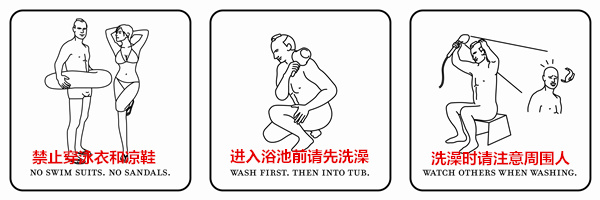
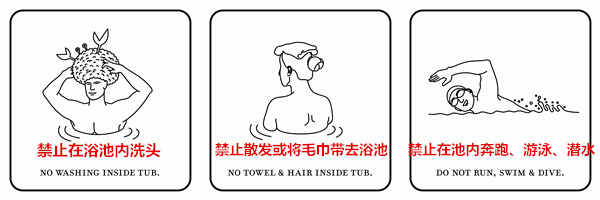
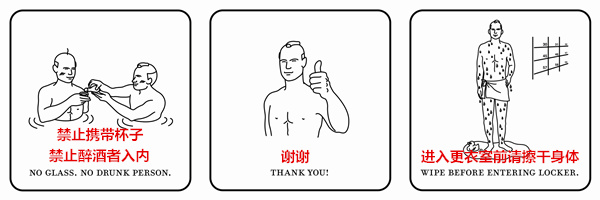
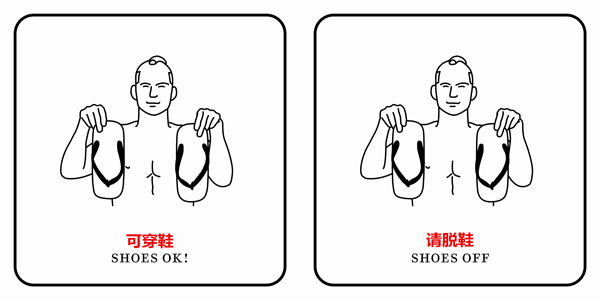
Shimomukai says they wanted to do something simple but fun to attract people's interest. The area is less of a draw for foreigners than tourist hubs like Tokyo and Kyoto, and communication troubles have made some locals reluctant to reach out to visitors. "Until recently some owners believed their profits from serving only locals were sufficient, and due to the language barrier, they may have left foreign visitors with a feeling that they were not welcome," he says.
Shimomukai表示,他們想要做一些簡單而有趣的事情來吸引人們的興趣。與東京和京都等熱門旅游城市相比,這里對外國人的吸引力較弱,而當地人因為一些溝通問題不愿意與游客接觸。“現在還有些商家認為,他們只服務當地游客就能賺到足夠的利潤,而由于語言障礙問題,他們可能讓外國游客感到備受冷落。”
Slightly more hi-tech approaches to dealing with communication problems have been rolled out elsewhere in Japan, as the number of foreign visitors grows. Last year, a new app was trialled that translates rail announcements into a visitor's own language, and some regions offer 24-hour multilingual hotlines for advice on everything from finding a doctor to sending luggage home.
隨著外國游客數量的增長,日本其他地方也出現一些解決溝通問題的方法,這些方法更高科技一些。去年進行測試的一款新型應用軟件可以將地鐵公告翻譯為游客本國的語言。還有一些地區提供24小時多語種咨詢熱線服務,你可以尋求找醫生、寄送行李回國等各種建議。
英文來源:BBC、《赫芬頓郵報》
翻譯&編輯:董靜
審校:yaning
上一篇 : 真實的達西先生長什么樣?保證超出你的想象(圖)
下一篇 : 法國男子離婚怒告優步索賠
關注和訂閱

電話:8610-84883645
傳真:8610-84883500
Email: languagetips@chinadaily.com.cn